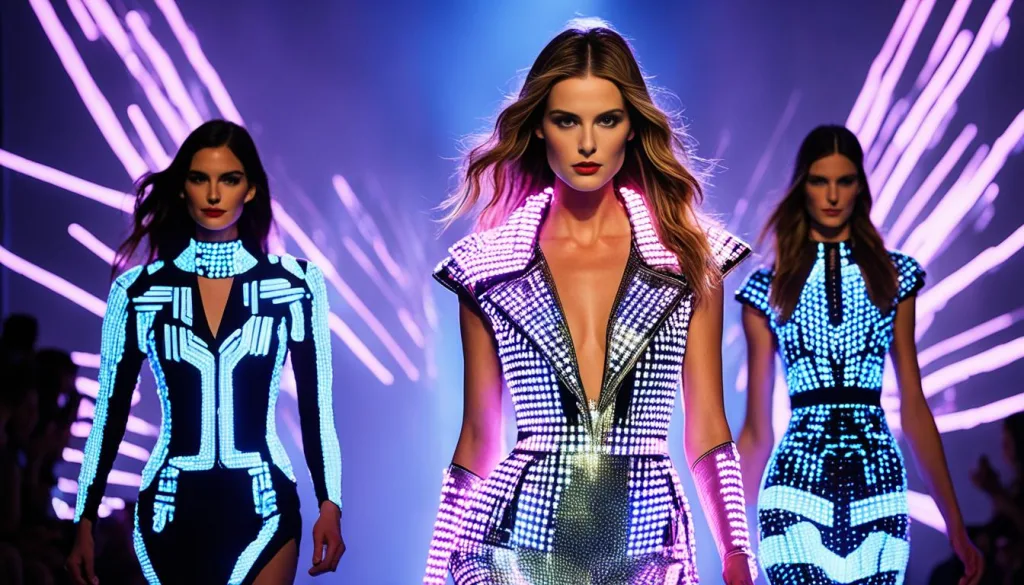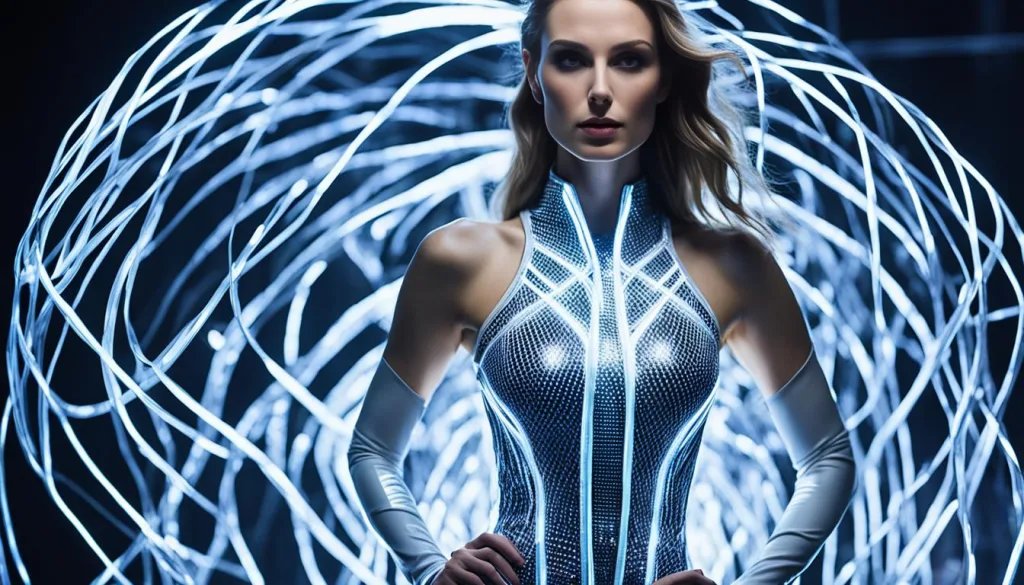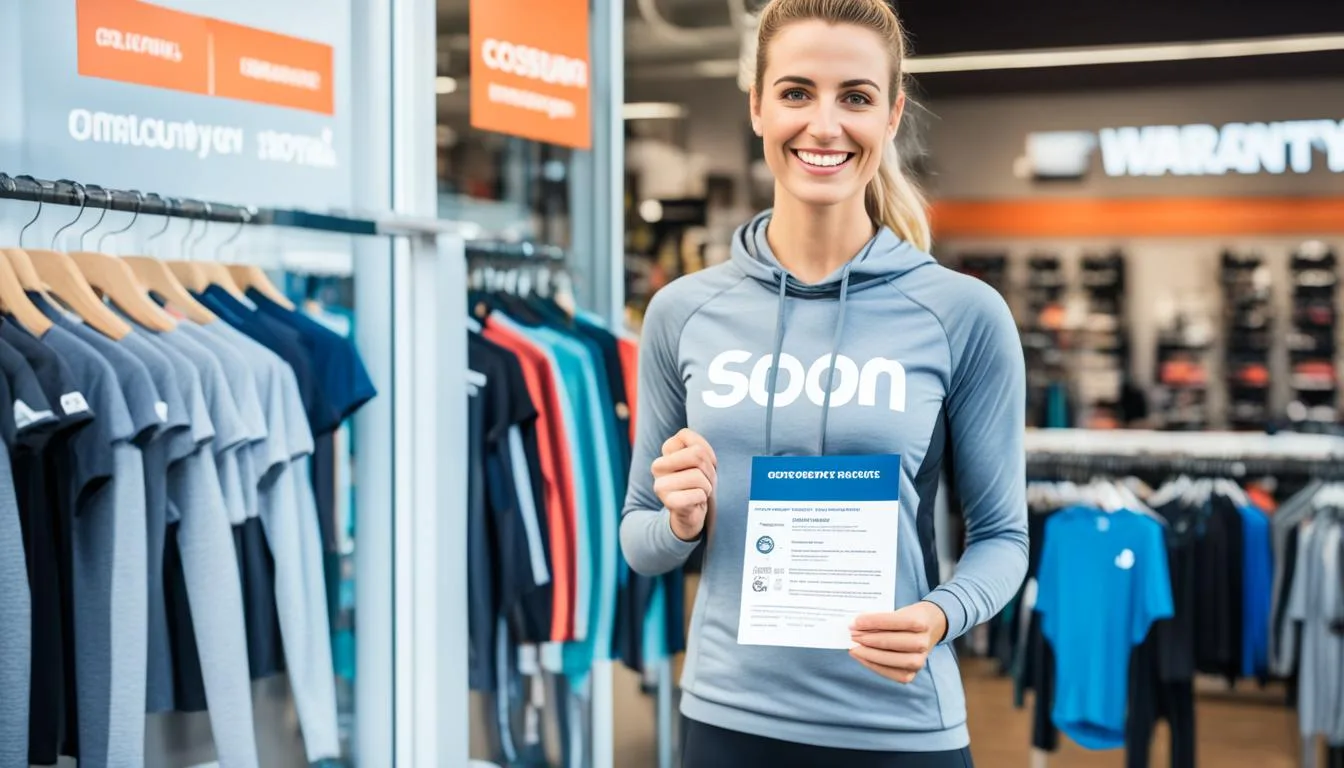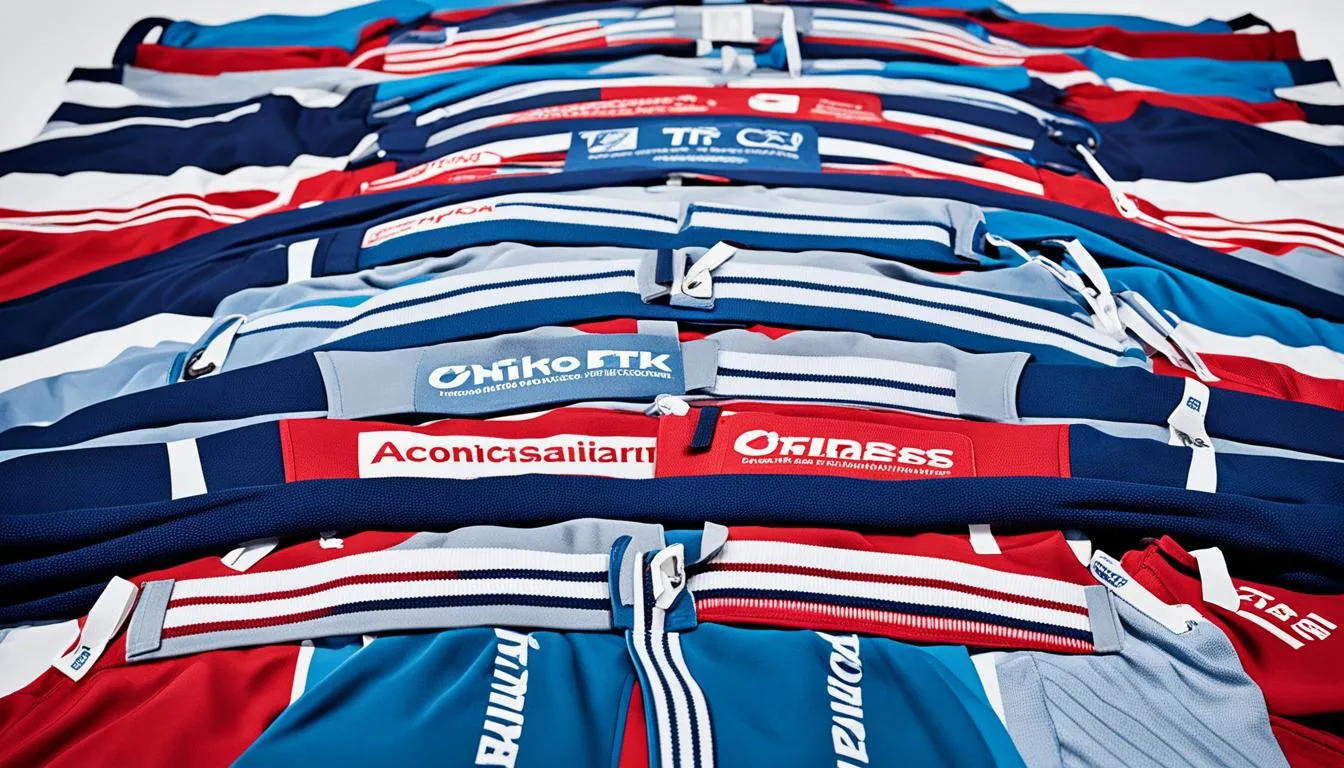Integrating LED Displays into Wearable Fashion
Connect With Us Today
Consider us for your next production run. Why wait? Send us your questions here.
Integrating LED Displays into Wearable Fashion mixes technology and style. It leads the charge in Smart Fashion. This new trend boosts looks and changes what Wearable Tech Fashion can do. Innovations like LED Clothing and Wearable Electronics are changing fashion tech. They’re making Interactive Fashion and Tech Fashion easier to get and more fun. This mix started long ago when people added gold and silver threads to their clothes. Harry Wainwright and David Bychkov’s work on LED/Optic displays has made LED fashion’s history rich and bright1.
Key Takeaways
- The connection between e-textiles and high fashion is huge. It changes how we see and use clothes, like with CuteCircuit‘s Hug Shirt1.
- Technology in fashion ranges from simple sensor attachments to clothes being sensors1.
- The start of Wearable Electronics comes from teams like MIT’s. They brought us real things like the Lilypad Arduino1.
- There are two main ways e-textiles work. One uses regular electronics, and the other integrates directly with fabrics1.
- Fibretronics combines metals in textiles. It starts a new phase of connectivity and electronic skills in fabrics1.
Unveiling the Trend: LED Displays in Modern Wearables
LED displays are becoming a key part of modern wearables, blending technology into our daily routines. We are seeing a surge in the LED fashion trend, full of new ideas. This blend of style and technology creates exciting LED wearable fashion.
The Rise of LED Fashion
LED fashion is making waves, from street style to high fashion. Its appeal lies in the creativity it offers designers. They light up their creations, making fashion glow.
From Costumes to Couture: The Versatility of LED Wearables
LED wearables are seen in flashy costumes and high-end fashion. They let designers push boundaries with light. You can now find LEDs in shoes, glasses, and gloves. The possibilities are endless2.
Understanding LED Technology in Fashion
Understanding LED technology is key to appreciating its role in fashion. It brings vibrant colors and movement to clothes. This not only looks great but helps wearable tech monitor health accurately2.
LED fashion is growing fast, affecting the global market. This includes smartwatches and ear devices3. This shift to a more connected life is supported by studies showing people welcome this technology3.
| Feature | Functionality | Impact |
|---|---|---|
| Color Range | Vibrant visual effect | Enhances aesthetic appeal |
| Integration in Textiles | Wearable devices | Monitors health indicators |
| Dynamic Displays | Displays notifications and data | Augments interactivity |
| Market Growth | Adoption in mainstream fashion | Encourages technology acceptance3 |
LED wearable fashion has a broad spectrum and a strong future. It merges style with tech for improvement and flair.
DIY Guide: Crafting Your Own LED-Infused Wearables
Starting your Creating LED Fashion journey combines creativity with tech. The rise of DIY LED Wearables shows how smart fabrics use conductive yarns for lights4. This guide will show you how to make LED-Infused Wearables DIY projects. They can spice up your clothes or innovate in sportswear.

- Choose Materials: Pick flexible, washable fabrics that work well with the hard electronic parts. This ensures they’re both useful and stylish4.
- Design Plans: Think about the important parts of your project like control and sensing. Decide what will shape your DIY work4.
- Adding Electronics: Put in components like LEDs carefully. Aim them at uses in health or sports for special purposes4.
- Power Sources: Find a battery that fits your wearable’s needs, looking at size, life, and comfort.
- Build It: Put everything together with sewable electronics or conductive glues. This keeps your creation intact.
With a LED Fashion DIY Guide, you can mix tough electronics and soft fabrics into LED clothing4. These items are not just for looks. They also help track health, like watching Parkinson’s with sensors that collect data5.
“The mix of tech and everyday fashion opens new doors for designers and tech lovers.”
For health uses, wearables play a big role in checking on Parkinson’s disease. In Europe, 1.2 million people are dealing with it, many in France. By 2030, this number is expected to grow. These gadgets are key in healthcare, helping doctors track patients’ conditions, even when few get specialist care5.
| Sensing Unit | Function | Application |
|---|---|---|
| Motion Sensors | Track movements | Sports and Fitness |
| Gestural Sensors | Interpret hand signals | Social Interactions |
| Position Sensors | Determine spatial orientation | Performance Monitoring |
| Bio-Vital Sensors | Monitor health metrics | Healthcare |
| Actuators | Give feedback with lights or vibrations | Used in various ways |
Making your own LED-Infused Wearables DIY is exciting and futuristic. It opens up possibilities like health gadgets for tracking diseases or sportswear that responds to your exercise. The tips here will help you succeed in LED Fashion DIY45.
Spotlight on Innovation: The Evolution of Wearable Electronics
The fast growth of wearable tech blends cutting-edge tech into our clothes. Wanting both style and function, big companies and researchers lead this big change.
Breaking Ground: Pioneering LED Integration in Textiles
Lenovo teamed up with fashion innovators RANRA, Kit Wan Studios, and Maium. They revealed the Lenovo Tab Wear Collection6. This project shows how LED lights blend with fashion, making Lenovo tablets part of unique clothing6. They focus on entertainment and being easy to carry, making clothes that mix tech with green choices for the trendy user6.
Eco-friendly ideas, like recycling and using local stuff, help make fashion better for our planet6.
The Lenovo Tab Wear lineup has stunning items. Like a coat that blocks noise and light and a jacket that turns into a hammock6. This teamwork changes old-fashion ideas by adding technology, making our daily life better through style and usefulness6.
Stretchable Displays: A Game-Changer for Wearable Tech
A global team made a big leap by creating a 46-inch fabric display. It puts smart tech right into the material7. They used a new way of making things with fibers. Now, we have smart fabrics that can do more than we thought, in all shapes and sizes7. This fabric opens new doors in wearable tech, like showing info, feeling touch, and keeping energy7.
Groups like the European Commission back this kind of research. They want tech we can wear to be kind to the environment and fit into our lives well7.
| Technology Advancement | Contributors | Sustainability Focus | End-User Benefit |
|---|---|---|---|
| LED Integration in Multipurpose Garments | Lenovo, RANRA, Kit Wan Studios, Maium | Recycled Materials, Local Sourcing | Enhanced Entertainment and Mindfulness |
| Fiber-Based Smart Textile Display | International Scientific Team | Environmental Impact Minimization | Functional, Flexible Display with Energy Storage |
These breakthroughs in wearable tech create a strong link between electronics and style. They not only show off science and design skills but also predict a future where tech is part of what we wear.
Integrating LED Displays into Wearable Fashion
Integrating LED displays into Wearable Fashion is not just about looks. It’s also about the practical uses they offer. Research has shown a growing interest in how these technologies can help in health and energyLED-Fashion Fusion8.

Adding tech like fabric pressure sensors lets us track health through clothes, combining style and health monitoring8. Also, making silicone-textile sensors in large amounts could lead to their common use in LED Displays in Fashion8.
- Smart textiles enhancing everyday health monitoring8
- Wearable technology powered by advanced energy harvesting solutions8
- Eco-friendly power sources integrated into fashion accessories8
Cotton-fiber sensors can now track stress, and sensors in clothes can measure sweat’s glucose8. Plus, using solar cells and organic photovoltaic cells in clothes shows a push for eco-friendly fashion in LED-Fashion Fusion8.
| Technology | Application | Innovation |
|---|---|---|
| Triboelectric Nanogenerators | Energy Harvesting | Fiber, yarn, and textile-based designs |
| Stretchable Alkaline Batteries | Wearable Applications | Conductive fabric infused power |
| Ultrahigh Areal-Capacitance Fabrics | Energy Storage | Waterproof supercapacitors for wearables |
| Light-Emitting Devices | Smart Fabric Applications | Direct printing on textiles |
Printing light-emitting devices on textiles is a big step in mixing tech with textiles8. This includes light-emitting junctions and solar cells in clothes. It marks a new era of innovation in smart fashion8.
Design Considerations for LED Inclusive Fashion
Design Considerations for LED Fashion are key for merging fashion with tech. They help create outfits that not only look good but are functional too. Moving from standard clothes to ones that light up shows how designers are embracing new tech.
Choosing the right LEDs for a fashion project is crucial. Designers must consider how bright they want the lights, what colors they need, and how much power they’ll use. It’s all about finding the perfect mix of beauty and lasting power.
Selecting the Right LEDs for Your Fashion Project
Finding the best LEDs is about knowing the effect you want to create. For example, Pierre Cardin’s runway show in Beijing in 1979 was all about drawing in the crowd9. LEDs should make an outfit stand out and encourage people to interact with it.
Ease of Integration: Sewable LEDs and Smart Textiles
Sewable LEDs make adding lights to clothes easier. They remind us of the Peking Express exhibition in 2013, where designs connected with people on a deeper level9. Likewise, Smart Textiles in LED Fashion mix traditional fabric with modern lights. It allows designers to tell stories through their work.
By combining LEDs with smart textiles, fashion becomes more than just clothes. It’s a blend of art, culture, and technology that communicates something significant9.
| Consideration | Benefits | Application |
|---|---|---|
| Brightness | Enhances visibility and impact | Spotlight features in low-light settings |
| Color Options | Offers creative versatility | Theme-based designs |
| Power Efficiency | Ensures longevity of the garment | Wearable for extended periods |
| Sewable LEDs | Facilitates easier integration | Designs requiring flexibility and movement |
| Smart Textiles | Brings interactive elements | Engagement-focused fashion\ exhibitions |
LED fashion does more than catch the eye. It invites people to step into a world where fashion is an experience. Like past and present shows, it changes how we see the bond between the wearer and the viewer9.
Conclusion
The fusion of technology with fashion is a game-changer. It brings a new era where style meets functionality through LED Displays in Wearable Fashion. This mix is not just cool but useful, making clothes more than what they seem. With the wearables market expected to hit $30.2 billion by 2018’s end 10, the future looks bright.
However, this journey faces its challenges. About 30% of fitness wearable users stop using them within six months11. This highlights the need for better design and more appealing user experiences. The potential is huge, from power-saving OLEDs to smart LED-lit textiles. These advances can make fashion both safer and more spectacular.
LEDs have transformed how we think about lighting and displays. They’re energy-efficient and can shine in many colors without filters. This makes them key in wearable-tech’s rise. Our article invites you to explore the exciting intersection of fashion and tech. Join the conversation on wearables 11 and be part of a bright future.
FAQ
What is LED fashion?
How can LED displays be incorporated into wearable fashion?
What are the benefits of integrating LED displays into wearable fashion?
Can I create my own LED-infused wearables?
What are sewable LEDs and smart textiles?
What factors should I consider when selecting LEDs for my fashion project?
What is the future of integrating LED displays into wearable fashion?
Source Links
- https://en.wikipedia.org/wiki/E-textiles
- https://www.himss.org/resources/wearable-technology-applications-healthcare-literature-review
- https://www.ncbi.nlm.nih.gov/pmc/articles/PMC6818529/
- https://www.ncbi.nlm.nih.gov/pmc/articles/PMC7037315/
- https://www.nature.com/articles/s41531-023-00585-y
- https://news.lenovo.com/pressroom/press-releases/cutting-edge-fashion-designers-wearable-prototype-tab-wear-collection/
- https://www.cam.ac.uk/research/news/scientists-develop-fully-woven-smart-display
- https://www.ncbi.nlm.nih.gov/pmc/articles/PMC8229797/
- https://www.nature.com/articles/s41599-023-02373-8
- https://www.faa-design.com/files/8/25/8-1-doha.pdf
- https://www.mdpi.com/2076-3417/12/21/11154
Latest News
How Collaboration Shapes Consumer Preferences in Sportswear
Navigating Consumer Rights and Warranties in Sportswear Sales
Artificial Intelligence in Fashion Forecasting and Trend Analysis
The Shift Towards Inclusive Sizing in Sportswear: Consumer Reactions
The Global Expansion of Luxury Sportswear Brands
From Sketch to Gym: The Design Process of Fashionable Sportswear
Understanding the Role of Trade Associations in Sportswear Compliance
How Economic Trends Influence Consumer Spending on Sportswear
Learning from Successful Global Market Entries
Best Practices for Managing Cross-Cultural Teams
Using Technology to Fight Counterfeit Fashion Products
Carbon Nanotube Fabrics for Superior Strength and Flexibility
The Growth of Fitness Tracking Apparel in Health and Wellness
Exploring the Influence of Social Proof in Sportswear Purchasing
Strategies for Managing Compliance in a Multinational Operation
Trends in Global Footwear: Performance Meets Lifestyle
The Role of Artificial Intelligence in Tracking Supply Chain Operations
Evaluating the Success of Sportswear Collaborative Projects
Evaluating the Potential of Emerging Markets
Global Shifts Towards Gender-Neutral Sportswear
Share This Article
Latest Articles



















